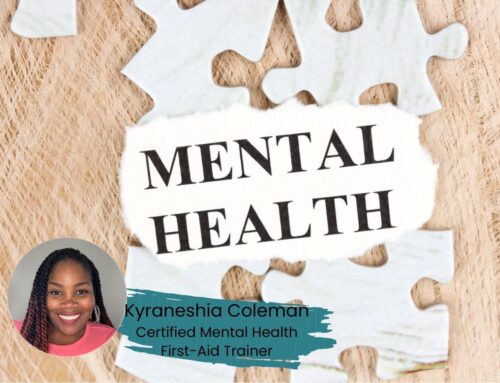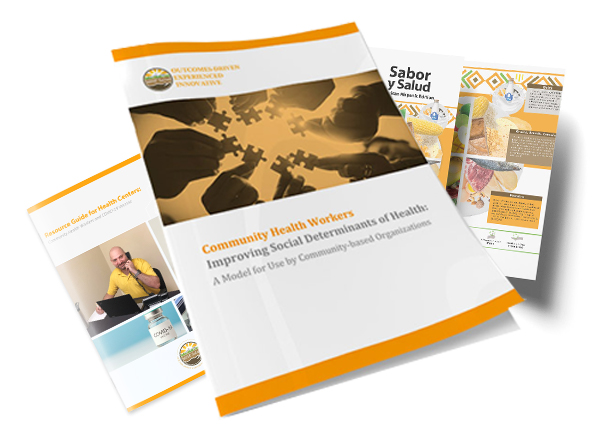CHWs Supporting MSAWs’ Health Across Life’s Seasons
Community Health Workers (CHWs) play a crucial role as essential frontline public health workers who connect the communities they serve with health and social resources. CHWs’ unique strength is rooted in their deep understanding of cultural, social, and economic dynamics within their communities. CHWs often belong to the communities they serve and possess a diverse set of qualities and skills that make them invaluable contributors to public health, whether they serve in paid professional or volunteer roles.
Unique CHW skillsets include:
- Cultural competence
- Strong communication
- Empathy
- Adaptability
- Interpersonal skills
- Problem-solving abilities
- Health education proficiency
- Organizational capabilities
- Advocacy
- Resourcefulness
- Resilience, and
- Language proficiency
Migrant Seasonal Agricultural Worker (MASW) Population Snapshot
MSAWs are key contributors to the U.S. economy and its food source, emphasizing the importance of ensuring this population has appropriate access to health care. MSAWs:
- Are employed in temporary agricultural jobs;
- Often move from one location to another to work during specific growing seasons; and
- Come from various cultural and linguistic backgrounds.
Of the approximately 2.4 million MSAWs in the United States, 69% were born in Mexico, 24% in the U.S., 6% in Central America, and the remaining originate from other regions.
Because of the transient nature of their work, MSAWs and their families require specialized support to address their health, social, and educational needs throughout the agricultural seasons. This includes providing culturally sensitive guidance during life transitions, offering resources for mental health and well-being, and facilitating access to services that cater to unique challenges faced by MSAWs across various stages of life. For MSAWs, being aware of resources that fit their current and future needs can help shape a better quality of life.
Strategically integrating Community Health Workers (CHWs) into community organizational teams can effectively support MSAWs in maintaining a continuum of health and social services throughout their life stages and their geographical transitions. Benefits of this integration include:
- A more effective and culturally sensitive delivery of essential services to MSAWs;
- Respect and understanding of individual health, mental health, and nutrition;
- Support of personal choices, cultural practices, and beliefs;
- Connections between organizations’ messages on specific health or social services and the diverse cultures they serve;
- Grassroots approaches to address issues and barriers within a community by acknowledging the strength and resilience of the community; and
- Collective responses to challenges, transforming them into opportunities for empowerment.
Examples of five CHW-driven responses to support MSAWs in receiving important health and social services care:
Mobility and Transience:
- Challenge: Frequent movement following agricultural seasons makes it difficult for MSAWs to access consistent support services.
- Opportunity: CHWs can develop mobile support systems, using technology like mobile apps or virtual platforms, to provide continuous information and assistance, ensuring services can reach MSAWs regardless of their location.
Language Barriers:
- Challenge: Language differences can impact effective communication between MSAWs and service providers.
- Opportunity: CHWs, fluent in the languages spoken by MSAWs, can function as interpreters, bridging the communication gap. CHWs also can access interpretation services or multilingual materials to facilitate communication between workers and healthcare providers.
Access to Healthcare:
- Challenge: MSAWs may face significant health disparities due to numerous factors, including limited access to healthcare and a lack of continuity of care.
- Opportunity: CHWs can serve as advocates, guiding MSAWs to available healthcare services. They can organize mobile health clinics to bring healthcare directly to agricultural communities, and facilitate partnerships between healthcare providers and these communities to improve overall healthcare access.
Legal Protections:
- Challenge: MSAWs may not be fully aware of their legal rights and protections, making them susceptible to potential exploitation. Aging workers and those with disabilities may be more vulnerable to exploitation due to potential discrimination.
- Opportunity: CHWs can conduct targeted workshops on labor rights and legal protections, emphasizing the rights of aging workers and individuals with disabilities. Collaboration with legal aid organizations can provide specific assistance in cases of discrimination or exploitation.
Culturally Appropriate Practices:
- Challenge: Cultural stigmas and taboos related to certain health conditions or seeking medical help may exist within the MSAW community. Overcoming these cultural barriers is essential to promote early detection and treatment of health issues.
- Opportunity: CHWs can lead collaboration among clinical teams and social services to create a holistic, culturally appropriate support system for MSAWs. CHWs can also support discussions on cultural values and norms that may influence healthcare decisions and interactions with healthcare providers.
MHP Salud offers specialized support to health centers through Technical Assistance, focusing on fostering CHW-driven, culturally appropriate practices.
Additional resources:
- Findhelp.org highlights free or reduced-cost resources like food, housing, financial assistance, health care, and more.
- Find a Health Center makes it easier to search for HRSA-funded health centers and connect to assistance for health care, maternal health, disabilities, or chronic health conditions.
- InsureKidsNow.gov provides info on Medicaid and CHIP, which offer free or low-cost health insurance for kids and teens.
- Migrant Clinician Network helps ensure continuity of care and treatment completion by providing comprehensive case management, medical records transfer, and follow-up services for mobile patients.
- Area Agency on Aging (AAAs) /Aging and Disability Resource Centers (ADRCs) seek to address frustrations many older adults, people with disabilities, and their family members may have when trying to learn about and access long-term services and supports, which are especially important for older adults who have limited access to retirement benefits or stable housing due to the seasonal nature of work.
- Migrant Legal Aid offers support for legal issues, questions, or concerns regarding farmworker rights.
This resource is supported by the Health Resources and Services Administration (HRSA) of the U.S. Department of Health and Human Services (HHS) as part of an award totaling $678,959.00 with 0% financed with non-governmental sources. The contents are those of the author(s) and do not necessarily represent the official views of, nor an endorsement, by HRSA, HHS, or the U.S. Government. For more information, please visit HRSA.gov






